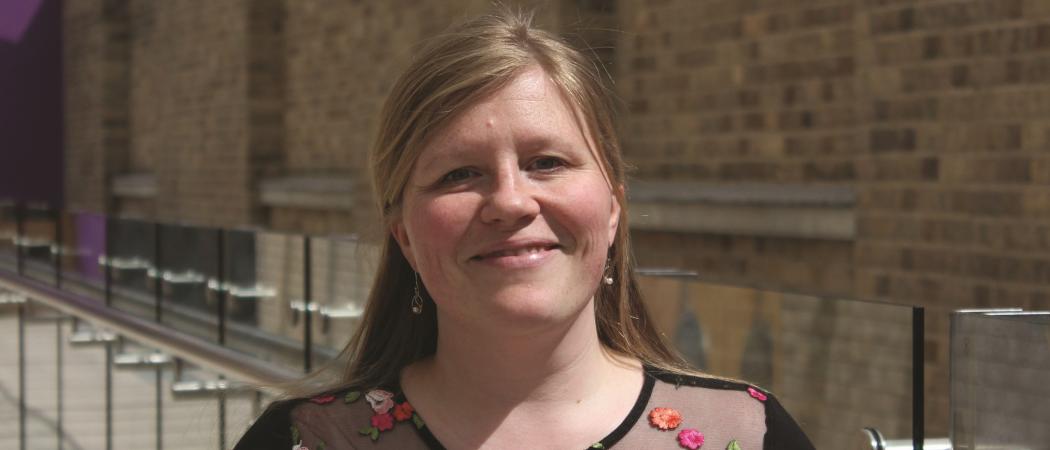‘A flood’ of research into new surface coatings that repel the virus are among ideas for making buildings pandemic-proof

Felicity de Cogan, fellow at the university’s Institute of Microbiology and Infection. Photo: MIT Technology Review, Innovators Under 35.
Door handles and handrails made with COVID-19-resistant material may be popping up in shopping centres, metro stations and other crowded places, once the work of a Birmingham University researcher is complete.
“At the moment there’s a great deal of innovation going into how you can kill the virus from surfaces in seconds or minutes,” said Felicity de Cogan, a fellow at the university’s Institute of Microbiology and Infection.
de Cogan is founder of a spin-out company, NitroPep, which has engineered a protective coating capable of neutralising coronavirus on contact. The technology bonds antimicrobial agents to metals and plastics so that bacteria and viruses are wiped out in seconds.
“Surfaces are really important in the fight against COVID-19, and if we can clean surfaces we can stop the spread of disease,” de Cogan said. “If you touch a door handle that contains pathogens, they need to be killed in seconds before the next person touches it. The [state of the art] for this type of self-cleaning surface is 2-6 hours, it’s too slow.”
Having shown the active ingredient in NitroPep is efficacious against SARS-CoV-2, the company is in the process of getting the final round of surface testing in place now lockdown is easing, to show just how quickly the coating can kill SARS-Cov-2 on a surface.
Self-cleaning coatings with the potential to inhibit the contamination of surfaces, from door-knobs to surgical tables, could help prevent the 37,000 deaths annually that are thought to be caused by infections picked up from surfaces.
“I would expect to see a flood of different anti-microbial surfaces as our research labs get up and running again after lockdown,” said de Cogan. “I’d expect to see some on the market before Christmas.”
The antimicrobial coatings market is worth around $3.2 billion globally and is likely to grow after COVID-19, said de Cogan.
Corona opportunity
Fast disinfectant methods for public spaces are one of several challenges on the minds of engineers as they begin thinking how to design pandemic-resilient buildings.
Creating climate-friendly designs has been the main driver for years, but the pandemic is now forcing engineers to consider pandemic-proofing options.
“There’s opportunities with this crisis too,” said Catherine Noakes, professor of environmental engineering for buildings at Leeds University. “It is important to look to the future and how we can make buildings resilient to disease. It’s going to be for the next generation of engineers to come up with novel applications.”
Surface transmission is one of three main ways that scientists think the coronavirus can spread, along with direct human-to-human transmission via large droplets produced when coughing or sneezing, and smaller airborne droplets.
Anti-microbial coatings generally work well on silver and copper surfaces, “But they don’t last on the surface for a long time – a few days – so it means they have to keep getting resprayed,” said de Cogan.
Her invention, which she says can last on surfaces for years following a single application, is fully tested and regulatory approved for sale in the UK. “We are seeing a great deal of enquiries coming in since the start of the pandemic.”





 A unique international forum for public research organisations and companies to connect their external engagement with strategic interests around their R&D system.
A unique international forum for public research organisations and companies to connect their external engagement with strategic interests around their R&D system.